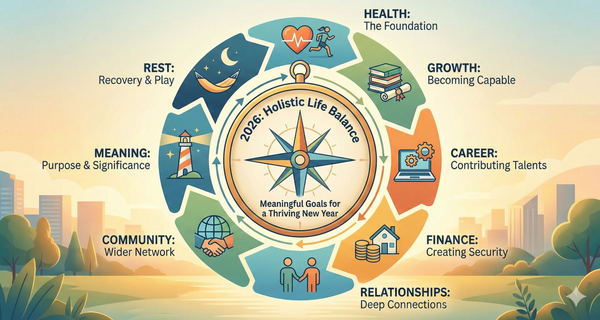Helping Kids Build Emotional Intelligence

Helping Kids Build Emotional Intelligence
In the complex world we live in, one of the greatest gifts you can give your child is the ability to understand and manage their own emotions, as well as navigate the feelings of others. This is the essence of emotional intelligence (EQ), a critical skill set that goes hand-in-hand with intellectual ability. For parents looking to raise resilient, compassionate, and successful children, focusing on emotional intelligence is key. This guide offers essential parenting tips to help you cultivate these vital skills in your kids, empowering them to manage their emotions and build strong, healthy relationships.
Understanding Emotional Intelligence
At its core, emotional intelligence is the capacity to be aware of, control, and express one's emotions, and to handle interpersonal relationships judiciously and empathetically. It's not about suppressing feelings, but rather understanding them and using that understanding to guide behavior. By focusing on kids emotions from an early age, we provide them with the tools they need for a healthier, happier life.
The Core Pillars of EQ
Emotional intelligence is built on five key pillars. First, there's self-awareness, the ability to recognize and understand your own moods and emotions. Second is self-regulation, which is the skill of controlling and redirecting disruptive impulses and moods. The third pillar is motivation, a passion for work or goals for reasons beyond money or status. Fourth is empathy, the ability to understand the emotional makeup of other people. Finally, social skills, the fifth pillar, involve proficiency in managing relationships and building networks. Mastering these pillars is fundamental for developing strong emotional intelligence.
Why Emotional Intelligence Matters for Kids
Nurturing emotional intelligence in children offers profound benefits that extend into every corner of their lives. It's a foundational skill that supports them through school, friendships, and future careers, equipping them to handle life's inevitable challenges with grace and resilience.
Building Stronger Relationships
Children with higher emotional intelligence find it easier to make and maintain friendships. They can empathize with their peers, share and take turns, and manage conflicts constructively. By understanding social cues and the feelings of others, they can build more meaningful connections, which is crucial for their social development and overall happiness. These parenting tips are designed to enhance those very skills.
Boosting Academic Success
Emotional intelligence is a surprising but powerful ally in the classroom. Skills like self-regulation and motivation help children to pay attention longer, persist through challenging tasks, and manage the stress of exams and deadlines. Kids emotions, when managed well, can lead to better focus and a more positive attitude toward learning, directly impacting academic performance.
Promoting Lifelong Well-Being
Perhaps the most significant benefit of high emotional intelligence is its impact on mental health and resilience. Children who can identify and cope with their emotions in healthy ways are less prone to anxiety and depression. They develop a stronger sense of self and the confidence to navigate life's ups and downs, building a resilient mindset that will serve them for a lifetime.
Actionable Parenting Tips for Nurturing EQ
The good news is that emotional intelligence is not a fixed trait; it can be taught and nurtured. With consistent effort and the right strategies, parents can significantly boost their child's EQ. Here are some practical parenting tips to get you started.
Expand Their Emotional Vocabulary
You can't manage what you can't name. Help your child develop a rich vocabulary for their feelings. Move beyond simple words like 'happy' or 'sad' to more nuanced terms like 'frustrated,' 'anxious,' 'excited,' or 'disappointed.' When they're upset, help them label the feeling: "It sounds like you're feeling really frustrated that your tower fell over." This helps validate their experience and is a cornerstone of managing kids emotions.
Practice Active Listening and Validation
When your child shares their feelings, give them your full attention. Put away your phone, make eye contact, and listen without interrupting or immediately trying to solve the problem. Validate their feelings by saying things like, "I can see why you would feel that way" or "That sounds really difficult." This doesn't mean you agree with their behavior, but it shows them that their emotions are valid and that you're there for them.
Model Healthy Emotional Expression
Children learn how to handle their emotions by watching you. Be open about your own feelings in an age-appropriate way. Saying, "I'm feeling a bit stressed because we're running late," teaches them that it's normal for adults to have these feelings and provides a model for how to express them calmly and constructively. This is one of the most powerful parenting tips for fostering emotional intelligence.
Teach Problem-Solving and Coping Skills
Once an emotion is identified and validated, you can guide your child toward healthy coping strategies. This could involve taking deep breaths when angry, finding a quiet space to calm down, or drawing a picture of their feelings. You can also brainstorm solutions to the problem that caused the big emotion, empowering them to take action and feel more in control.
A Gift for a Lifetime
Helping your child develop emotional intelligence is an ongoing journey, not a destination. It requires patience, empathy, and a willingness to learn alongside them. By implementing these parenting tips, you're not just helping them manage their kids emotions today; you're equipping them with a foundational skill set for a successful and fulfilling life. The effort you put in now is truly a gift that will last a lifetime, shaping them into empathetic, resilient, and well-rounded individuals. Start today, and watch your child flourish.




